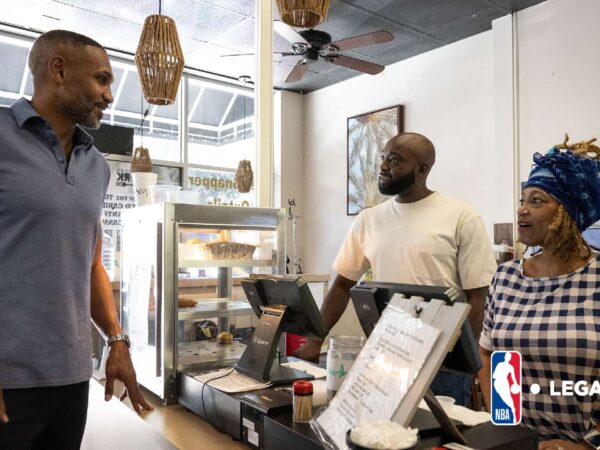Report: Business Owners of Color Lack Credit Access
We know that a small business loan can be the difference between a dream and an opportunity—but too many small business owners face barriers when it comes to accessing traditional financing. That’s why we were particularly interested in a recent report released by the Federal Reserve Banks of Atlanta and Cleveland focusing on ethnic minority small business owners.

Accion Opportunity Fund is committed to serving entrepreneurs with diverse backgrounds, businesses, and needs. We know that a small business loan can be the difference between a dream and an opportunity—but too many small business owners face barriers when it comes to accessing traditional financing.
That’s why we were particularly interested in a recent report released by the Federal Reserve Banks of Atlanta and Cleveland focusing on ethnic minority small business owners. The report is based on survey responses gathered from the Federal Reserve’s 2016 national Small Business Credit Survey.
The report’s findings reveal that a significant majority of minority-owned small businesses, especially very small businesses, face financial challenges and gaps in funding. Some of the key findings include:
- Black–owned firms report more credit availability challenges or difficulties obtaining funds for expansion than nonminority–owned firms—even among firms with revenues of more than $1M.
- Black–owned firm application rates for new funding are 10 percentage points higher than white–owned firms, but their approval rates are 19 percentage points lower.
- Looking at just firms that were approved for at least some financing, when comparing minority– and nonminority–owned firms with good personal and/or business credit scores, 40% of minority–owned firms received the full amount sought compared to 68% of nonminority–owned firms.
- Black– and Hispanic–owned firms are less likely to apply for financing at small banks and more likely to apply at community development financial institutions (CDFIs) and online lenders, relative to white–owned firms. Large banks are the most common type of lender applied to overall.
- The number one reported reason for applying for financing across all business ownership types is to expand business or pursue a new opportunity.
- Forty percent of nonapplicant black–owned firms report not applying for financing because they were discouraged (i.e., they did not think they would be approved), compared with 14% of white–owned firms and 21% of Hispanic– and Asian–owned firms.
- The percentage of minority–owned firms operating at a profit is significantly below that of nonminority firms, a gap that is most pronounced between black– and white–owned firms.
Of particular concern for the field of small business finance are the stark differences in loan approvals between minority-owned and white-owned firms. These gaps illustrate the vital importance of CDFIs and mission-based lenders like Opportunity Fund that place a particular emphasis on lending in underserved communities.
The Equal Credit Opportunity Act of 1974 (ECOA) prohibits banks and other lenders from gathering data on loan applicant ethnicity, gender, and other protected classes, to reduce discrimination in lending. However, the Small Business Credit Survey findings illustrate that despite the ECOA rule, minorities still see unequal access to capital. The lack of data on loan applicants may have had the unintended consequence of masking, rather than reducing, barriers to credit for ethnic minorities.
Opportunity Fund believes that robust data collection is essential to ensuring equal access to capital for small businesses in the US. The Consumer Financial Protection Bureau has proposed a rule that would require more financial institutions to collect and report on demographic data, and Opportunity Fund strongly supports the proposed rule. We are committed to serving entrepreneurs of color and believe that this rule will promote diversity in small business lending.
Read the Atlanta and Cleveland Feds’ report to learn more about the findings on minority-owned small businesses, and discover more about the Small Business Credit Survey’s other reports and current survey collection effort.





